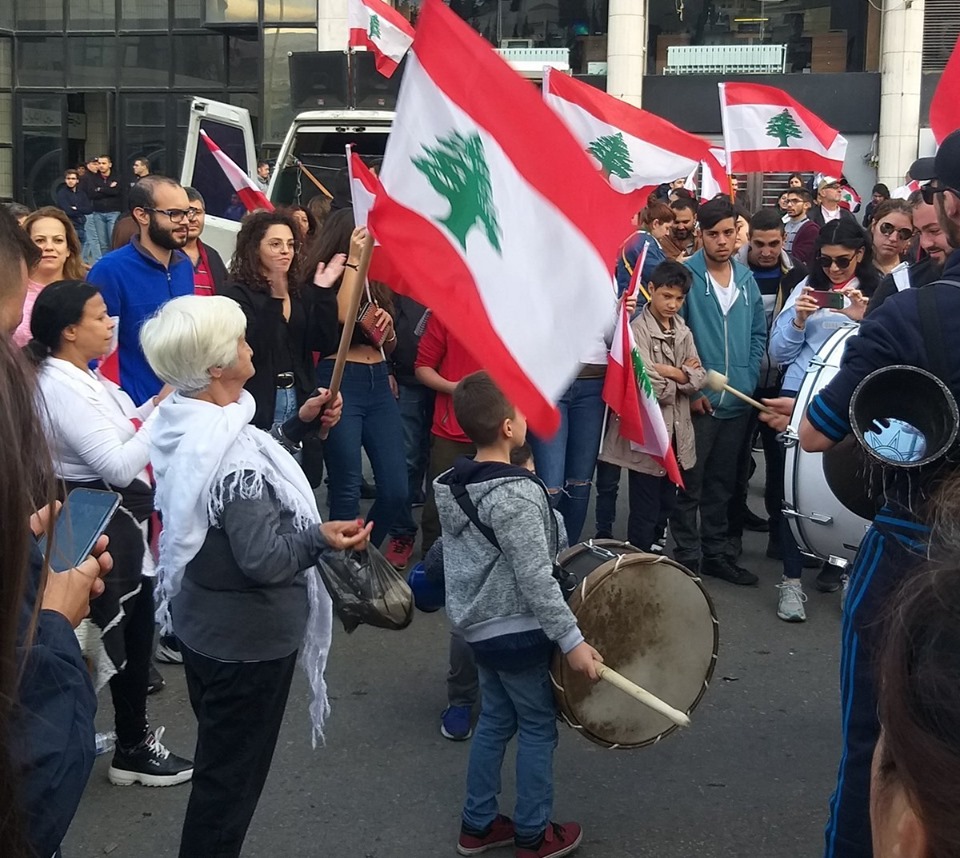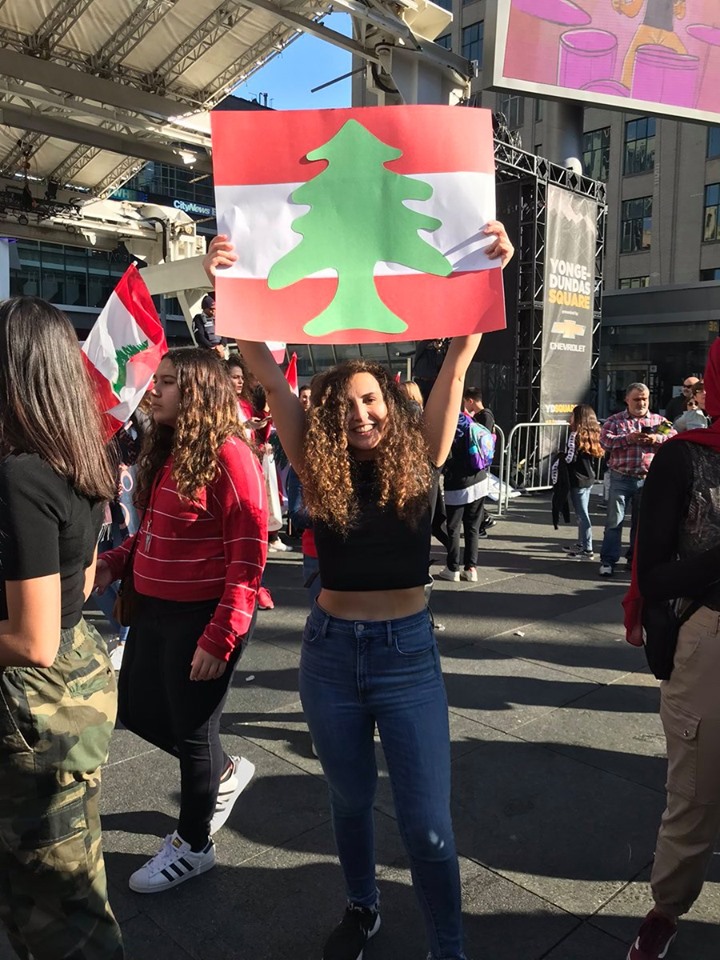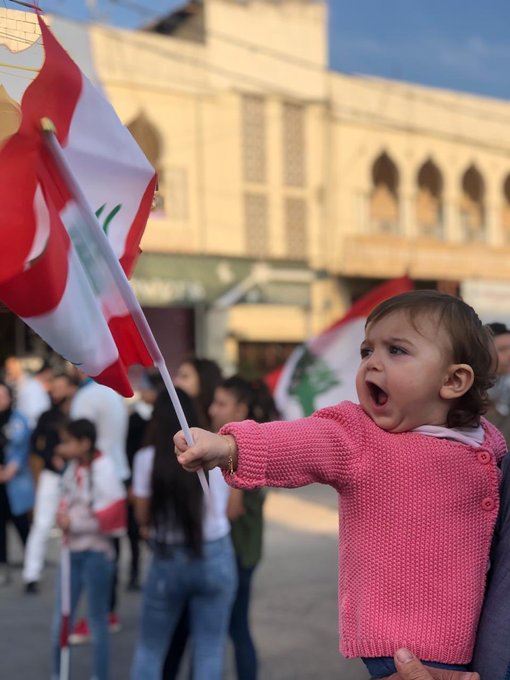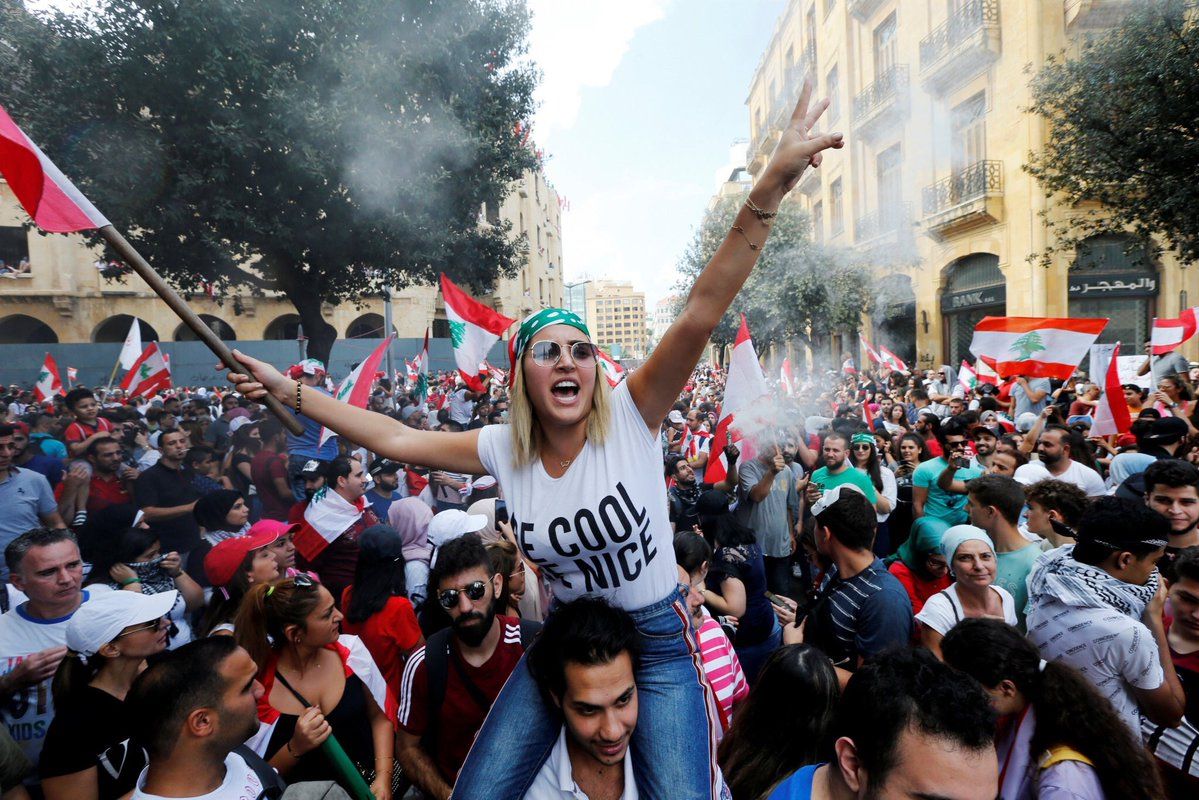Lebanon protests enter second week
Published: 2019-10-24 13:22
Last Updated: 2024-04-25 12:39
Unprecedented nationwide protests in Lebanon entered their second week Thursday, with demonstrators defying the army to block roads and press their demand for a complete overhaul of the political system.
Sparked on October 17 by a proposed tax on calls made through messaging apps, the protests have morphed into a cross-sectarian street mobilization against a political system seen as corrupt and broken.
On Thursday morning demonstrators set up roadblocks around the capital, AFP correspondents and Lebanese media reported.
A dozen young protesters had blocked one major east-west artery, pitching tents in the middle of the road.
Sitting on the pavement with a red and white keffiyeh on his shoulders, a 30-year-old who had trained as a chef said he had been protesting since the first day.
"We're here closing the main road to stop some movement in this country," he said, asking not to be identified.
"People think we're playing but we're actually asking for our most basic rights: water, food, electricity, healthcare, pensions, medicine, schooling," he told AFP.
- 'Revolution, revolution' -
Embattled Prime Minister Saad Hariri has presented a package of reforms, including cutting ministerial salaries, but the rallies have continued, crippling Beirut and other major cities.
As President Michel Aoun was expected to break his silence later in the day, dozens of young protesters marched in the direction of the capital's Martyrs' Square chanting: "Revolution, revolution."
Washington on Wednesday called on Lebanon's leaders to meet the "legitimate" grievances of citizens.
More than a quarter of Lebanon's population lives in poverty, according to the World Bank.
Almost three decades since the end of Lebanon's civil war, the political deadlock has stymied efforts to tackle mounting economic woes compounded by the eight-year civil war in neighboring Syria.
Protesters are asking for a new political system -- which they say has been dominated by the same families for decades -- and an end to corruption, as well as voicing more personal political grievances.
Blocking another street in Beirut with a dozen other young demonstrators, a 22-year-old said he had been up all night to protest corruption but also to demand his Lebanese nationality.
"I'm protesting because my mother is Lebanese and I'm not," said the young man, who was born in Lebanon to a Palestinian-Syrian.
Thousands of people born to Lebanese mothers but foreign fathers remain unable to acquire citizenship.
"I think I have the right to have the Lebanese nationality," he said, leaning against a motorbike parked in the middle of an intersection.
- Yoga mats -
In the mountain town of Aley southeast of the capital, a dozen women and men sat cross-legged on colorful yoga mats in the middle of the grey asphalt road.
Banks, schools and universities remain closed.
The protests have largely been peaceful and cheerful, with night-time gatherings turning to celebrations.
On Wednesday, the army deployed in the streets, sparking fears of the kinds of clashes seen during the first two days of the demonstrations.
But protesters faced the troops chanting "peaceful, peaceful" and a video of one soldier seemingly in tears was shared widely online.
In the southern city of Nabatieh however, a Shiite stronghold of the Hezbollah and Amal movements, police tried to disperse protesters by force, leaving several injured, according to the National News Agency.
Protesters are demanding an end to what they view as widespread corruption, and the return of the money they say was stolen from the people.
On Wednesday, a state prosecutor charged former Prime Minister Najib Mikati over corruption allegations, in a move whose timing appeared as a nod to protesters.
Mikati, 63, along with his brother, his son and a Lebanese bank have been accused of "illicit enrichment" over allegations of wrongly receiving millions of dollars in subsidized housing loans.
The former premier denies the allegations.
Lebanon ranked 138 out of 180 in Transparency International's 2018 corruption index, and residents suffer chronic electricity and water shortages.





